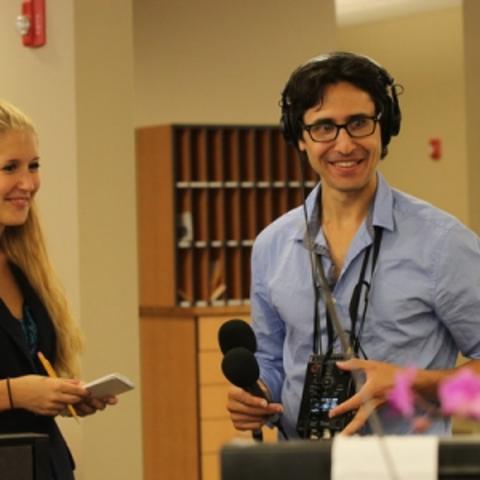Section Branding
Header Content
Race In Real America
Primary Content
Julie Lythcott-Haims is the seventh generation of her family to grow up in the United States. And yet, she is still asked, over and over: “Where are you really from?” She responds eloquently in her new memoir: “Real American.”
It tells a life story of being biracial in a society where people are exceedingly quick to classify and label by ethnicity. Lythcott-Haims is in Atlanta for a book signing and conversation with Beverly Daniel Tatum at the Margaret Mitchell House at 7 p.m., January 30. She joins us in the studio.
Julie Lythcott-Haims talks about racial identity as she's lived it.
Interview Highlights
Adam Ragusea: Tell me about your title “Real American”. That’s a phrase that has entered public discourse in many ways in recent years.
Julie Lythcott-Haims: Many years ago politicians on the right started using that term “real Americans” to describe a segment of Americans that they felt their message was applicable to, and every time I heard that term “real American”, I knew they weren't talking about me. Folks like me, people of color, people presumed to have gotten here the wrong way. So I wanted to reclaim that term for all of us who are presumed not to be fully American, but the other reason I chose that term is because I am descended from a slave named Silvie who lived in Charleston in the late 1700s. Although the Constitution made her three fifths of a person, she is my great great great great grandmother. They didn't consider her human, but she knew she was here and she made me a “real American”.
Ragusea: In your book you talk about being the one person in your neighborhood that looked like you and that led to issues. Tell us about that.
Lythcott-Haims: I mean these are the issues we refer to as “micro aggressions” in today's lexicon. I think in some ways my book in collecting up the various micro aggressions I chose to put in here, which is by no means everything I experienced, I hope I've created a trail of breadcrumbs that leads to this conclusion that “Whoa, in the aggregate, “microaggressions” really distort a person's sense of self and make one contort themselves to try never to be called that N-word again as happened to me when I was in my all white high school serving as a student council president. And on my 17th birthday someone chose to write the N-word on my locker.
Ragusea: That strikes me as a “macro aggression”?
Lythcott-Haims: But I didn't tell anybody Adam because I was ashamed. I knew I was the only black person in my school. I sort of felt that racism had burrowed so into my psyche, that I felt that my job now is to pretend this never happened and to try to be the black person that white people will never call the N-word. So I spent the next twenty-five years performing in a way that I hoped would result in no more scrutiny or judgment or loathing or hatred coming from white folks. I think the point of this book in the aggregate showing all these “microaggressions” in the life of someone who is middle and then upper middle class and highly educated is that racism is agnostic to class.

